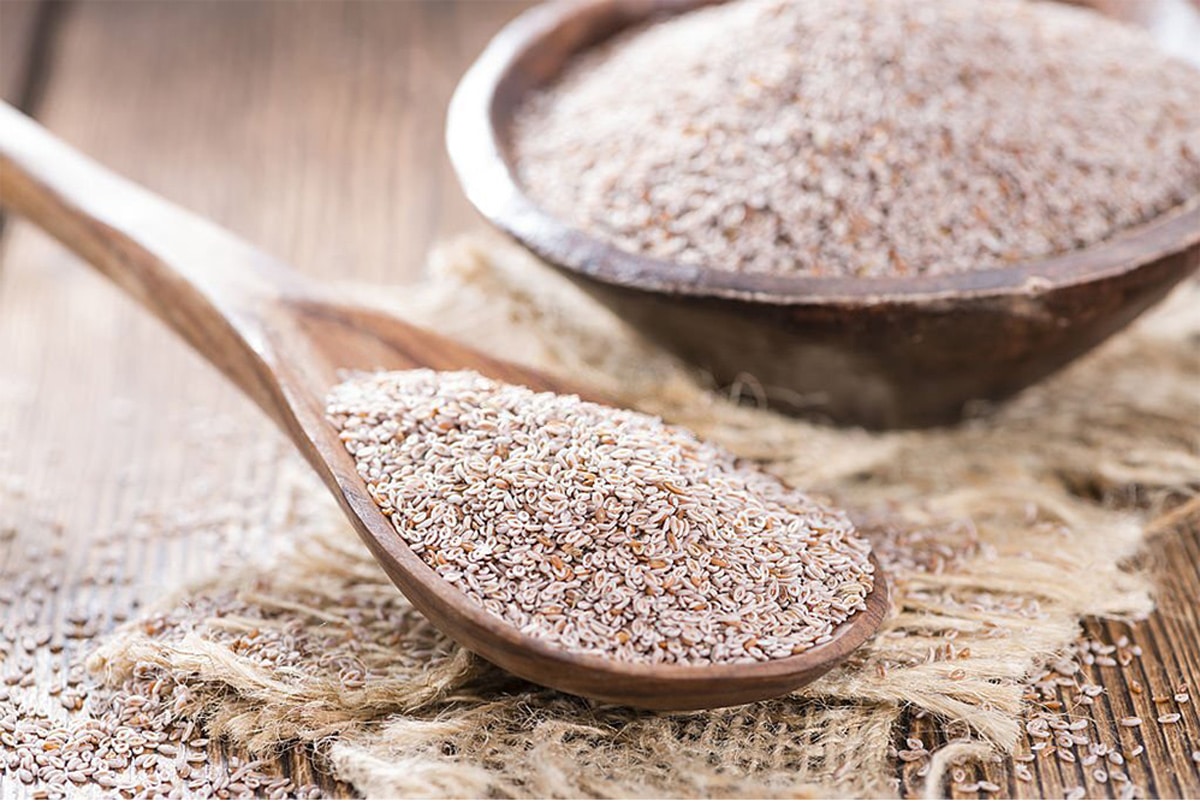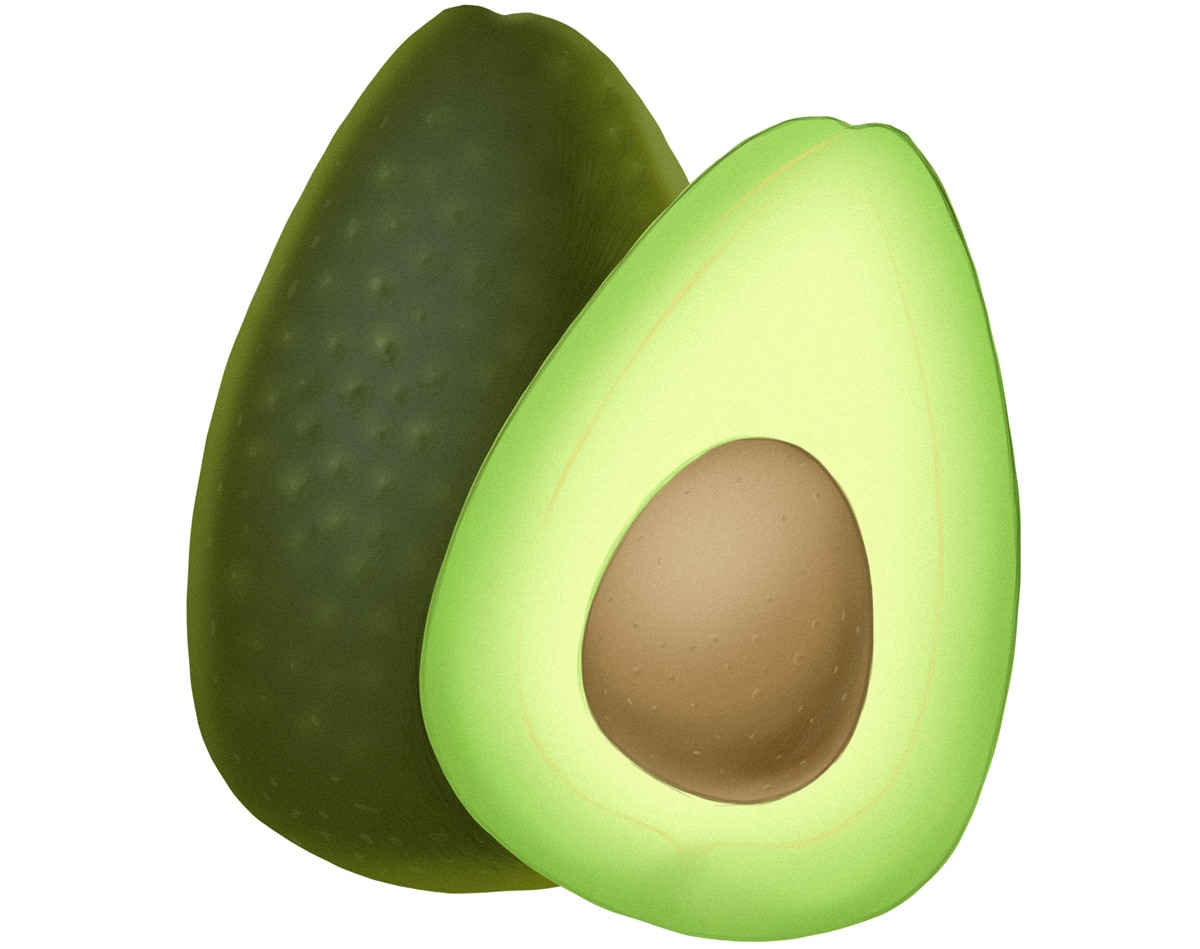If you're struggling with constipation, diarrhea, bloating, gas, or just about any other problem, most people's first suggestion will be some kind of fiber supplement, and psyllium typically ranks pretty high on the list of recommendations. So what actually is it, and does it really help?

What Is Psyllium Husk?
Psyllium is the seed of a plant native to Southeast Asia. It’s not terribly remarkable in its raw state as a food, but the husk of the seed is very high in viscous soluble fiber. Specifically, it contains 70% soluble and 30% insoluble fiber.
Viscous soluble fiber means that the psyllium husk attracts a lot of water to itself and forms a slippery gel as soon as it’s exposed to water – say, for example, in your digestive system. And that makes it very popular as a kind of digestive lubricant for treating constipation and maintaining regular bowel movements. It’s also claimed to help with constipation by sheer bulk: even a tablespoon or two of psyllium will swell up a lot and the mass helps push feces through the intestine.
Psyllium husk is also a poorly fermentable fiber – people used to assume that all soluble fiber was fermentable as well, but now we know that isn’t true. This study looked at the composition of psyllium husk and found that most of its component fibers, including the ones that form the gel, resist fermentation.
Being poorly fermentable means that psyllium isn’t very good at providing food for your gut flora. This can be a blessing and a curse – on the one hand, it won’t encourage growth of bad bacteria or overgrowth of the good ones. This makes it less likely than other types of fiber to cause problems like bloating, cramps, or abdominal pain.
On the other hand, it also won’t encourage the growth of any that you actually want, so it’s not a great way to improve your gut health in the long term. For example, this study found that, in healthy women, taking 7 grams/day of psyllium failed to affect the levels of beneficial bifidobacteria in the gut, except in women who had low levels of bifidobacteria in the first place.
Does it Actually Work for Constipation?
Because of its lubricating and bulking qualities, many people take psyllium to manage constipation – psyllium husk is the active ingredient in popular laxatives like Metamucil. But does it actually help?
Probably. According to one review of studies, psyllium does seem to be effective for increasing stool frequency and possibly also for other symptoms like reducing abdominal discomfort. The effective dose was around 10 grams per day, either taken all at once or split up into several doses. But the reviewers also noted that they could only find three high-quality studies to analyze – and one of them had just 22 subjects.
Another review and meta-analysis on fiber for Irritable Bowel Syndrome found that psyllium had a small effect, but the effect got smaller when the reviewers only looked at high-quality studies.
In other words, psyllium likely has a small effect on constipation, but the amount of high-quality evidence is actually pretty small, and it’s not a cure-all. On the other hand, there weren’t many adverse effects reported in those studies, and it did do better than insoluble fiber like wheat bran.
Psyllium may also have a benefit for diarrhea - it seems strange that the same kind of fiber would be good for both constipation and diarrhea, but the way that the gel-forming fibers work does seem to go both ways.
If you’re Going to take Fiber for Constipation, Psyllium is a Good Choice

The effect overall of taking fiber supplements is less than great. But if you’re interested in experimenting with them, psyllium is a good choice. For one thing, soluble fiber is a lot better for constipation than insoluble fiber, and being non-fermentable means that psyllium is less likely to cause unwanted symptoms like gas and bloating. Psyllium is a rare example of a fiber that’s soluble, viscous, and non-fermentable, which is probably one of the better forms of fiber around.
The problem with this is that it’s treating the symptom. Constipation is not caused by a psyllium deficiency. Taking huge doses of psyllium husk to turn your gut into a slip’n’slide is like taking a painkiller for a sprained ankle: you’ve addressed the most obvious symptom, but you haven’t actually addressed the problem.
If the actual problem causing the constipation is a lack of dietary fiber, most healthy people would do better to just eat more fruits and vegetables to get some nutrients with their roughage. (On the other hand, people who can’t eat fruits and vegetables for some reason might find psyllium to be a reasonably decent alternative)
If the actual problem causing the constipation is gut health or a gut flora imbalance, then the answer is to treat your gut health, not to just take psyllium to mask the symptoms. Even if you were willing to keep taking psyllium forever, that still wouldn’t address all the other reasons why gut health is important.
Other Potential Benefits
Psyllium husk is also supposed to be beneficial by lowering cholesterol levels, which makes it popular as a heart-health supplement even among people with no particular bowel problems.
It does indeed seem to lower cholesterol levels – but the problem with this is that there’s no direct evidence that psyllium actually reduces heart disease. Cholesterol and heart disease are very complicated, and it’s not clear that anything that reduces cholesterol levels will necessarily reduce heart disease risk.
Psyllium is also touted as an anti-diabetic agent, because it can help control the blood sugar response after a meal. This study found that psyllium husk helped men with Type 2 diabetes improve metabolic control. But again, poor blood sugar control is not a psyllium deficiency any more than constipation is – instead of eating your processed carbs with a huge dose of psyllium, why not just cut down on the processed carbs in the first place?
The upshot: health benefits of psyllium beyond treating constipation and diarrhea aren't terribly impressive, but they do probably exist.
If you Take It…
If you do decide to take psyllium husk for any reason…
- Pay attention to consumption instructions. Swallowing dry psyllium husk can cause it to absorb water and expand in your throat, which is a choking hazard especially for children. Mixing the psyllium with liquid before taking it completely avoids this.
- You can buy either whole psyllium husks or husks ground into a powder. They both have the same health properties, so pick your favorite.
- Start slow and gradually increase your dose – don’t start off with a huge dump of the stuff right away!
As for how to take it? Some people just mix it with water and drink it; if you can handle the texture, this is perfectly fine. You can also buy it in pill form so you don't have to taste it.
Psyllium husk is also sometimes used in low-carb or gluten-free baking as a binding agent, basically for the same reason it’s used as a laxative. Gluten is very springy and bouncy; without it, gluten-free baked goods can feel very flat or unpleasantly dense. Adding some psyllium can help put a little more bounce or moisture back into the gluten-free version – think of things like pizza crust, where you want a springy effect.
This can be another way to “take” the psyllium medicinally, or just a way to experiment with making your Paleo treats tastier – of course, with the caveat that these treats shouldn’t be regular parts of your diet regardless of whether they contain psyllium or not.
Overall, psyllium is unlikely to be a miracle supplement for anything, but it also comes with very little risk, so there’s no harm in giving it a try.





Leave a Reply